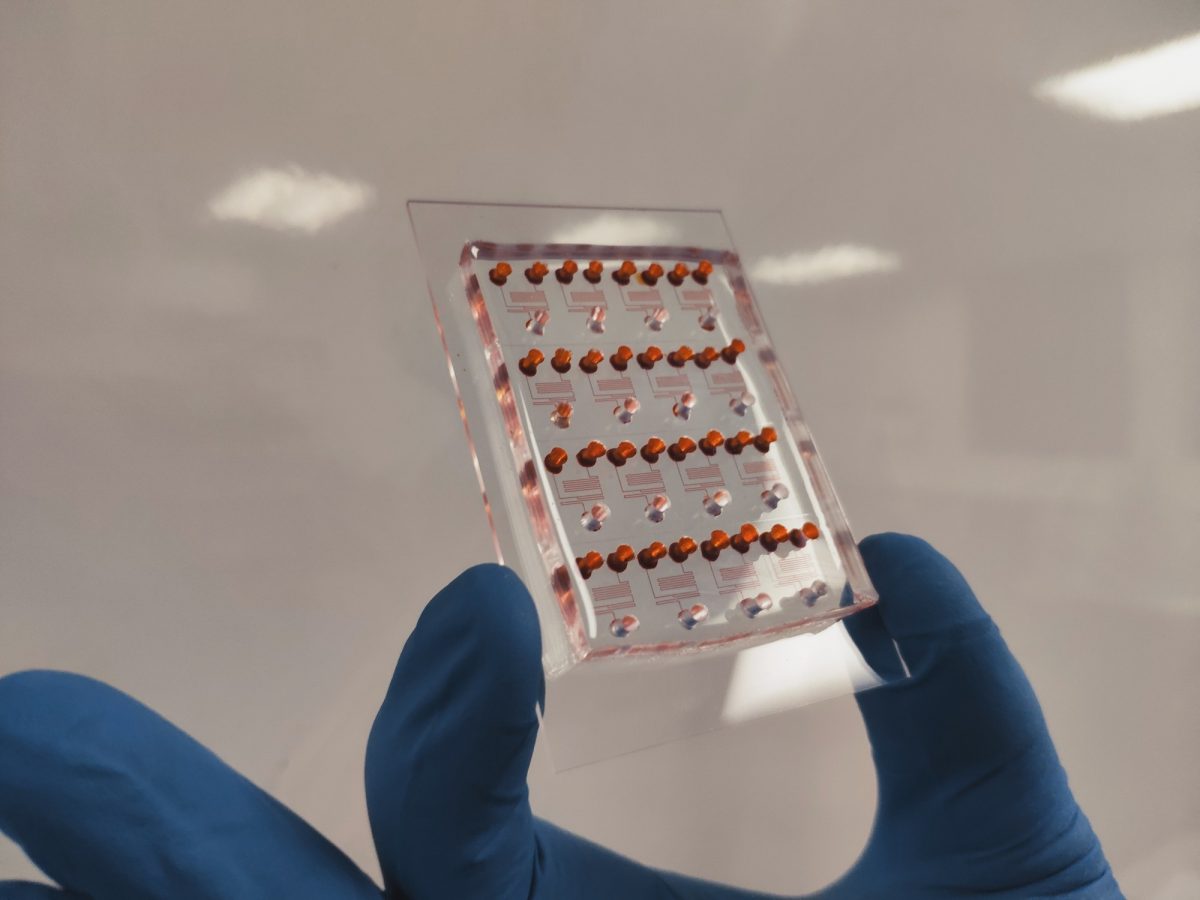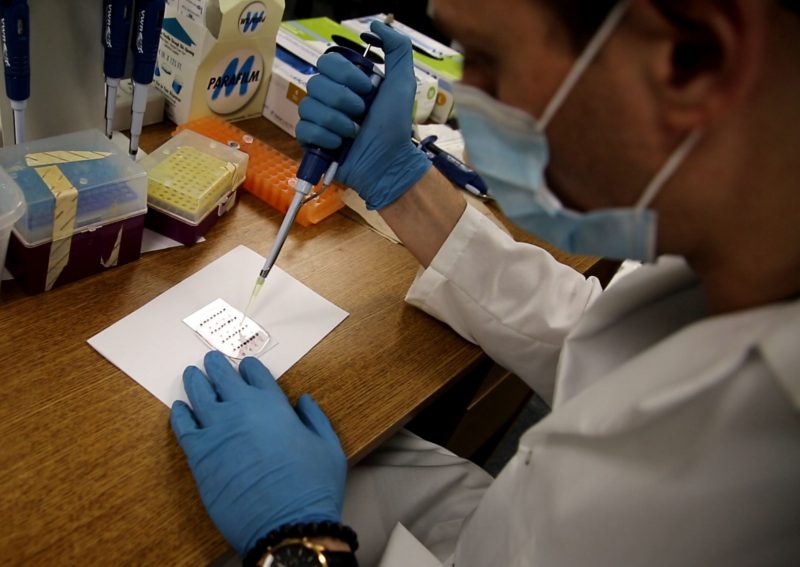
The handheld MATLOC device, which tests for chronic kidney disease, was developed by University of Manitoba researchers.
UM researchers develop handheld test for chronic kidney disease
Researchers at the University of Manitoba have developed a credit card-sized device to test for chronic kidney disease so compact and inexpensive that patients will be able to take the test at home. Test results would be available in just five minutes from a handheld device, called the Microfluidic Albumin Testing Lab on Chip (MATLOC).
MATLOC device co-creator Dr. Francis Lin, professor of physics and astronomy, and biological science, Faculty of Science, University of Manitoba, said the device is much needed for people living in rural and remote locations.

The MATLOC device uses microfluidics, which miniaturizes complex laboratory procedures onto a small microchip.
“The MATLOC device will enable truly point-of-care evaluations for chronic kidney disease,” Lin said. “It will bring a low cost, high sensitivity and accuracy, and easy to use diagnostic device to the patient, which is currently not available. This will significantly improve chronic kidney disease diagnosis and people will be identified well before kidney failure.”
The single-use device measures albumin, a protein found in urine that is the first sign of kidney damage. The device uses microfluidics, also known as lab-on-chip technology, which miniaturizes complex laboratory procedures onto a small microchip.
“We have taken a test that is normally done in a laboratory on a big, expensive machine and we’ve miniaturized it using microfluidics to create a chip that can give us a reading just as accurate but with a much smaller urine sample and in a much cheaper device,” said Dr. Claudio Rigatto, associate professor of internal medicine and community health sciences, Max Rady College of Medicine, Rady Faculty of Health Sciences, and academic director and scientist at the Chronic Disease Innovation Centre, Seven Oaks General Hospital. “The key is to detect chronic kidney disease early, because if we detect it at the beginning stages, we can pretty much arrest it in its tracks. We have drugs and treatments that can stop chronic kidney disease if we catch it early. To do that requires testing.”
Rigatto said that 50 per cent of patients who are high risk for chronic kidney disease aren’t being tested and at least half of kidney failure may be preventable with early diagnosis and treatment. If chronic kidney disease is tested more widely, it will impact people’s health and the health-care system because dialysis costs about $100,000 per year for each patient, he said.
The University of Manitoba’s Partnership and Innovation office saw there was a need for this device in the marketplace and patented the MATLOC technology. The office exclusively licensed the technology to My Health Logic Inc in March of this year.
“We’re extremely excited,” said Dr. Darren Fast, director of Partnerships and Innovation, University of Manitoba. “Anytime we find a home for a technology and somebody to bring it to market it’s just a great example of capturing the value that the public puts into research. It’s a great way to take research and move it to help people.”
In addition to Lin and Rigatto, the co-founders of this innovative technology include Dr. Jiandong Wu, Lin’s former postdoctoral fellow and now an associate professor at Shenzhen Institutes of Advanced Technology in China; Dr. Navdeep Tangri, associate professor of internal medicine and community health sciences, Max Rady College of Medicine, and scientific director at the Chronic Disease Innovation Centre, Seven Oaks General Hospital; Dr. Paul Komenda, professor of internal medicine and community health sciences at the Max Rady College of Medicine, and research director at the Chronic Disease Innovation Centre, Seven Oaks General Hospital; and Dr. Michael Gong Zhang, senior information specialist, Winnipeg Regional Health Authority.
“The Faculty of Science is very excited by the new point-of-care diagnostic device (MATLOC) that is based on microfluidics technologies being developed by Dr. Lin,” said Dr. Brian Mark, associate dean (research), Faculty of Science. “Dr. Lin’s collaboration with medical researchers to apply this technology to an unmet clinical need demonstrates the remarkable utility of microfluidics to the development of rapid diagnostics tools.”
“The innovative work by Rady Faculty of Health Sciences and Faculty of Science researchers is a great example of the interdisciplinary collaborations that are taking place at the University of Manitoba,” said Dr. Brian Postl, dean, Rady Faculty of Health Sciences and vice-provost (health sciences). “This cutting-edge technology has the potential to positively impact the lives of innumerable people around the world by detecting chronic kidney disease early.”






